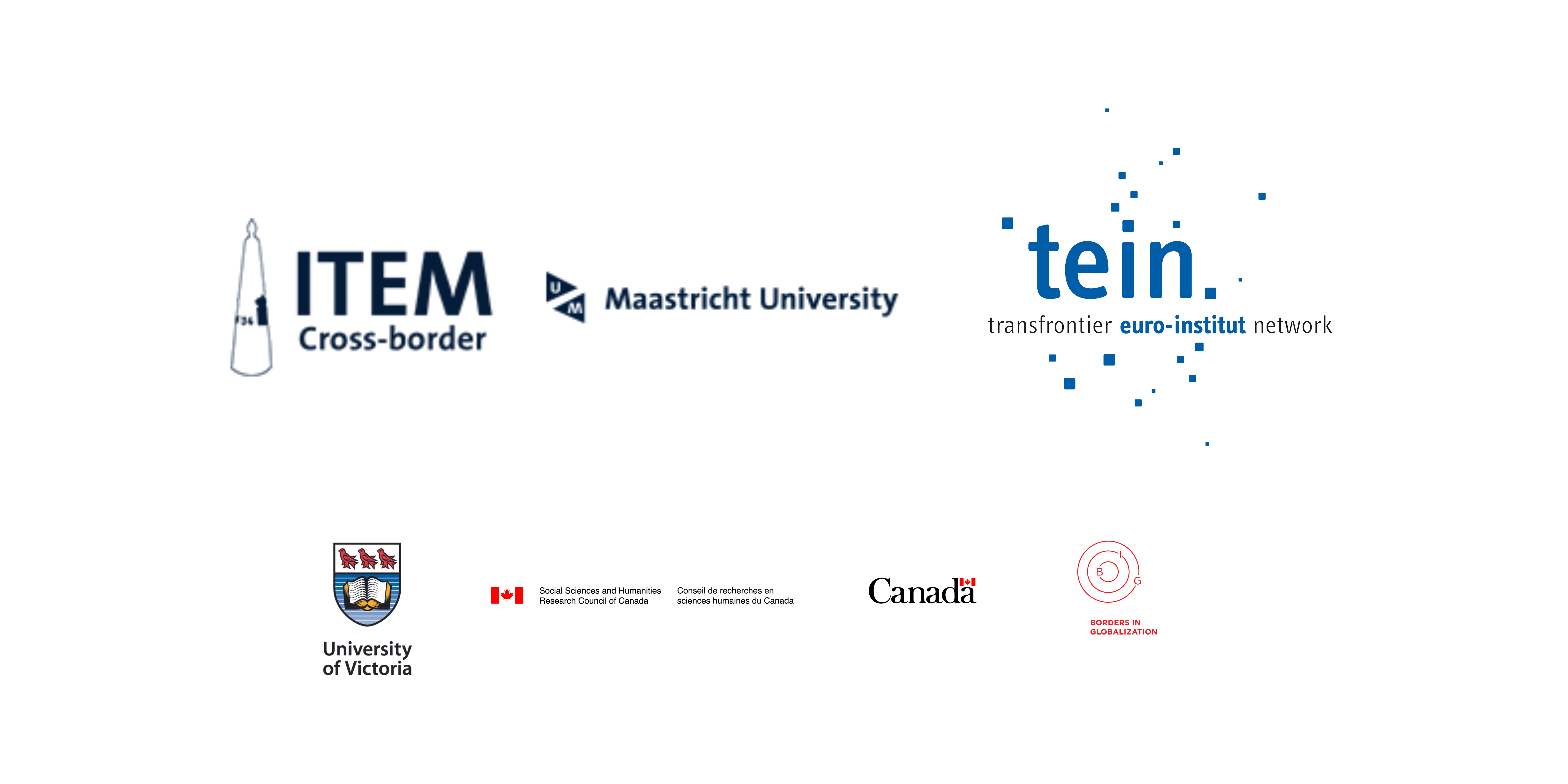TEIN Conference 2024
Details evenement
This 2-day Conference co-organised by the Institute for Transnational and Euregional cross-border cooperation and Mobility (ITEM) as well as the Transfrontier Euro-Institut Network (TEIN) and supported by the Borders in
Details evenement
This 2-day Conference co-organised by the Institute for Transnational and Euregional cross-border cooperation and Mobility (ITEM) as well as the Transfrontier Euro-Institut Network (TEIN) and supported by the Borders in Globalization-21st century project, addresses the practical challenges and prospects of future cross-border cooperation and mobility and advances debates and policy outlooks around and beyond the concept of horizontal integration.
Registration deadline: 20-9-2024 | 23.59 h
About the conference
Crossing the border daily is part and parcel of the life world of millions of Europeans. Whether traveling for work, to study, to shop, or for leisure, inhabitants of border regions go regularly back and forth between one country and another. In our cross-border mobility we experience not only the pleasures of the EU’s freedom to travel, but in many ways also still face administrative and cooperative limits, and problematic differences in social security, taxation, health systems, diploma recognition, crime control, cross-border entrepreneurship, studying, sustainability, energy transformation etc. etc.
Since Maastricht 1992 we have come a long way in fostering cooperation and mobility in cross-border regions, but cross-border cooperation and mobility is easier said than done. We haven’t (yet) cleared all technical, legislative, and cultural obstacles for a borderless process of European integration. How can we move forward to the next level of European integration in cross-border regions? Which innovations in cross-border governance mechanisms do we need?
The European integration discourse has long been dominated by the concept of vertical integration, that is to say on the relationship between the EU and its member states. Horizontal integration implies a process between similar public and private authorities across state borders at lower (regional and municipal) administrative level as well as people to people interactions.
Programme
Thursday, 26 September 2024
| 09:00 – 17:00 | Registration |
| 09:30 – 10:05 | Opening
Welcome by the Mayor of Maastricht Wim Hillenaar Welcome remarks by hosts Anne Thevenet (TEIN), Emmanuel Brunet-Jailly (BIG), Anouk Bollen (ITEM) |
| 10:05 – 10:30 | First keynote address
Ricardo Ferreira DG REGIO |
| 10:30 – 11:30 | Thematic plenary session: The Future of Cohesion in Cross-border Regions
Moderator: Martin Unfried, senior researcher, ITEM, Maastricht University The panel will discuss the future strategy and funding instruments for cohesion policy with a focus on in cross-border regions. In particular, the panel will discuss the future of Interreg programmes with respect to current deficiencies and strengths and the role of other EU funds. Panelists:
|
| 11:30 – 11:45 | Coffee break |
| 11:45 – 13:15 | Plenary paper presentation – TEIN Cross-Border Impact Assessment: Facilitating Cross-Border Solutions in the European border regions – the revised ECBM – An instrument for Horizontally integrated Europe?
A new instrument has been proposed to boost cross-border cooperation in Europe and to foster development in border regions: Facilitating Cross-Border Solutions. This panel will present insights from different border regions across Europe and assess what the impact would be. Insights from border regions in the Benelux territory, Germany, Poland, Hungary, Slovenia, France and Austria by ITEM, CESCI, WSB, Euro-Institut, Faculty of Public Administration – University of Ljubljana, Viadrina Center B/ORDERS IN MOTION, Carinthia University of Applied Sciences. Moderator: Martin Unfried, senior researcher ITEM, Maastricht University Panelists:
|
| 13:15 – 14:15 | Lunch break |
| 14:15 – 15:15 | Thematic plenary session: functional cross-border cooperation:
Moderator: Math Noortmann, senior researcher ITEM, Maastricht University Cross-border cooperation: structural inhibitors and functional enablers In this panel we discuss aspects that facilitate or impede cross-border cooperation. The panellist in this panel address (inter alia) such dogmas and sacred cows as national sovereignty and competitive advantage. But the panel also exhibit sectoral success in the fields of administration, education, entrepreneurship and crime control.
|
| 15:25 – 17:10 | Plenary paper presentation – Attitudes on European Integration in Border Regions in the light of the European Parliament Elections 2024 (download here)
Moderator: Birte Wassenberg, (Sciences Po Strasbourg) Panelists:
|
| 17:10 – 17:15 | Closing of the day |
| 17:30 – 19:30 | Welcome Reception (hosted by the Municipality of Maastricht, City Hall Maastricht |
Friday, 27 September 2024
| 09:00 – 13:00 | Registration |
| 09:30 – 09:45 | Welcome Remarks Anouk Bollen ITEM / Maastricht University |
| 09:45 – 10:15 | Second keynote address
Sebastian Gröning- von Thüna, Federal Ministry of Foreign Affairs Germany |
| 10:30 – 12:00 | Parallel paper session 1A Cross-border regions in national and European policies
Moderator: Pim Mertens, senior researcher ITEM, Maastricht University Panelists:
|
| Parallel paper session 1B Cross-Border Integration and Cooperation from Lingual and Cultural perspectives
Moderator: Math Noortmann, senior researcher ITEM, Maastricht University Panelists:
|
|
| 12:00 – 13:00 | Lunch break |
| 12:30 – 12:50 | Book presentation |
| 13:00 – 14:15 | Plenary Session Resilient Cross-border Cooperation in times of Crisis
Moderator: Martin Unfried, senior researcher ITEM, Maastricht University Panelists:
|
| 14:30 – 15:30 | Parallel paper session 2A Cross-border mobility: Labour and Business
Moderator: Susanne Sivonen, researcher ITEM, Maastricht University Panelists:
|
| Parallel paper session 2B Cross-border education
Moderator: Helga K. Hallgrimsdottir Panelists:
|
|
| 15:30 – 15.45 | Plenary conclusions and closure by Anne Thevenet Euro-institute TEIN |

Tijd
26 september 2024 09:00 - 27 september 2024 16:15(GMT+01:00)


